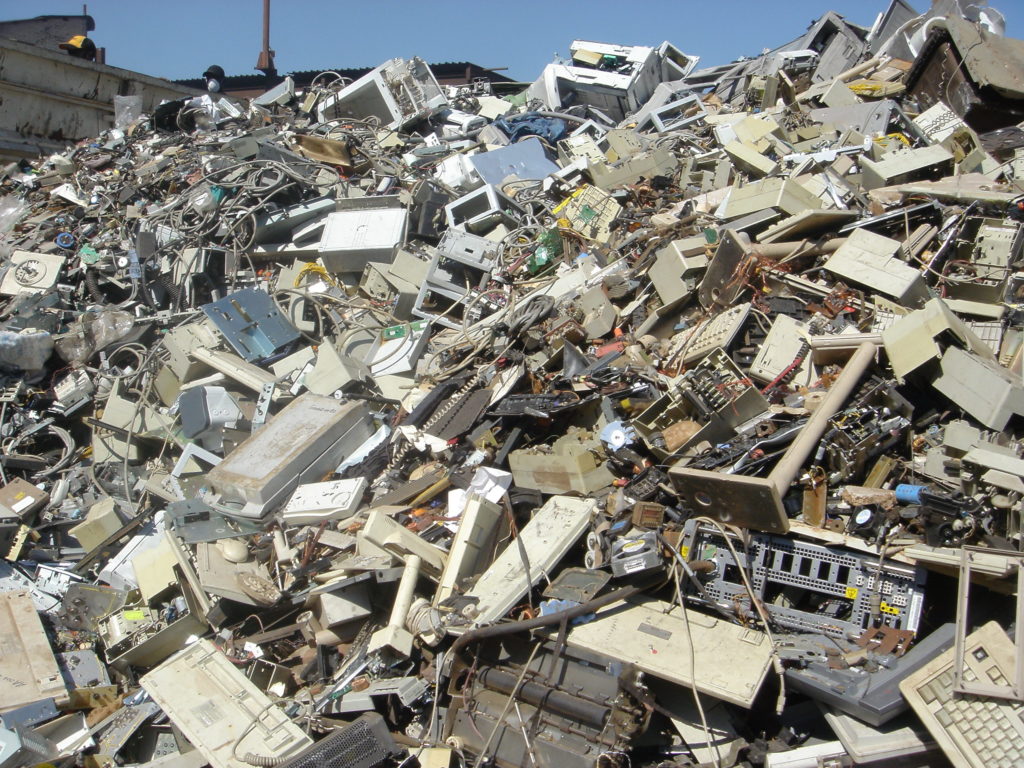A non-governmental organisation, E-Waste Recycling Foundation (ERF), has called for automation in the collection, sorting and recycling of e-waste in the country.

The foundation made the call at the 2022 Edition of the Lagos E-Waste Handlers Capacity Enhancement Programme (LEHCEP) on Wednesday, December 7, 2022, in Lagos.
Dr Godwin Igharo, Deputy Director, Central Research Laboratory, University of Benin, urged the government to engage the informal artisans involved in e-waste collection in technology based recycling.
Igharo noted that automated e-waste recycling was environmentally friendly and constituted less health risk compared to manual handling of e-waste by the informal artisans.
While relying on the findings of a research on e-waste, the scholar noted that the manual handling of e-waste constituted great health risk and was possible of causing cancer.
He said that there was the need for a national e-waste health risk survey in the country to expose the dangers of exposure to the manual handling of e-waste.
The expert recommended public enlightenment on environmental and health education on e-waste handling and disposal methods.
Also, Dr Ifeanyi Ochonogor, President, ERF, expressed gratitude to the Lagos state government for partnering with him in powering the summit since 2018.
He said that the initiative in tackling the looming e-waste crises in Nigeria is a step in the right direction for building capacity and consensus in the e-waste management sector.
He acknowledged the important role of waste handlers in the state.
“A smart city that Lagos wants to be needs smart solutions.”
According to him, the e-waste handling system in Lagos state is still very informal with its attendant risks occasioned by the manual and irresponsible handling of e-waste.by the collectors and handlers.
He noted that the informal e-waste collectors were often marginalised by the society.
He said that the task before the society is to bring dignity to the work the artisans do in ridding the environment of hazardous wastes
“Our greatest challenge is how to incorporate this informal sector into the mainstream of environmental managers.
“This is a task that requires critical thinking and the use of technology and innovation, robust transportation and pick up models, safe handling tools and devices.
“The role of government was to produce standards and rule of engagements for operators in the sector,” Ochonogor said.
Accordng to him, the informal sector has the capacity of going into the remote areas for collection.
He said that the challenge of the ERF has been paucity of funds, adding that in the coming years the foundation will become independent and weaned from enjoying funding from its parent company, E-Terra Technologies.
Ochonogor called for partners and well-meaning Nigerians to come onboard the ERF to take it to the next level.
Also speaking, Mr Taiwo Adewale, the Managing Director of Waste Exchange, cautioned the artisans in the informal sector to desist from the crude handling of e-waste through burning of some components in search of copper, iron or aluminium.
Taiwo said that indiscriminate burning of e-waste was hazardous, and was contributing to the problem of climate change.
The capacity building exercise was attended by artisans handling e-wastes in the Alaba International Market.
By Fabian Ekeruche
